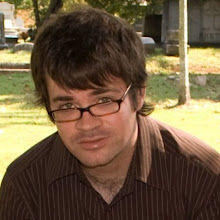In my last post I wrote about how history and genealogy are not as separate as some academics would like to make them, that both proceed from the same impulses and answer the same questions that yearn within us: Where did we come from? How did we get here? Today I will continue that thought. In addition to having a common drive, history and genealogy also share many of the same skills, resources, and methods. And something in the unique character of the South, a deep, shared connection to family and soil, ties history and genealogy closely together.
As a historian, one of the first lessons one learns is that there is only a finite number of sources, and that in many places, in many times, for many topics, there just isn't much. One learns to utilize what sources are available. The historians I admire most are able to arrive at momentous, compelling conclusions from limited data. I read a book last year, in medieval history, far out of my usual field, called A Medieval Life: Cecilia Penifader of Brigstock, c. 1297-1344, by Judith Bennett. The historian was able to synthesize a complex, detailed biography of a medieval peasant woman who lived over seven hundred years ago and never wrote anything, drawing conclusions about her community, her society, even her personal life, from only the records of her in the manorial court. And what amazed me most about the book was how similar it was to the art of genealogy. A genealogist, in exactly the same way, seeks to draw together the stories of his ancestors, often from the very same types of documents: court records, marriage records, death records — whatever is available. It is a genealogist's dream to be able to write a biography so rich with detail, to have such a clear picture of an ancestor as Judith Bennett presents of Cecilia Penifader.
In the study of prominent men, of politics and wars, there are speeches, essays, firsthand accounts — often a wealth of sources. But my interest in history gravitates towards the common man, to the yeoman farmers who made up the backbone of the South. Despite being the largest segment of the population, there is a paucity of documentation for them. Few of them wrote anything, and even fewer wrote anything that survives. They were simple men, simple women, who spent their lives eking their livelihoods from the soil. They had little time or place to write or make their marks on history; the chief thing they leave behind is family. They are my ancestors. And the way I approach the yeoman farmer historically and the way I approach him genealogically is the same. The sources we have are the sources we have, and both the disciplines of history and genealogy must rely on them. Here in the United States, the census is a chief tool for both the historian and the genealogist. Even studying a prominent figure, one of the first things I do is look for him or her on the census.
In the cases of all, what writes history — what makes a historian able to write it — is the rare gem of a source over and above the norm; a rich will, or a diary, or letters. What makes Cecilia Penifader's biography is that her life was so well documented in the manorial court. What makes me able to write on a yeoman farmer, without dipping deeply into demographic, economic, statistical data, is the rare presence of extraordinary documentation. What makes so much writing on Abraham Lincoln is that he is one of the most documented men in history; he personally wrote hundreds of documents, and hundreds of people wrote to him and about him; but certainly he is the rarest of rare cases, and if we did not have this wealth of documentation, we would still be telling his story by whatever we could find.
A genealogist exploits the same sources as a historian — whatever sources are available, however many or few, prominent or obscure. The only difference usually is in the questions that are asked and the approaches taken. While a historian often seeks to draw conclusions about communities, societies, and trends, to generalize from the individual to the larger whole, a genealogist is content to tell a personal, individual story. But very often these approaches overlap, especially here in the South, and especially in studying these yeoman farmers. I am writing a history paper this semester, a biography of a yeoman farmer who served in the Confederate Army, that is in fact no different from any genealogical article I've ever written.
I am rambling, and I fear this is too long and not very interesting. I still have one more point I wanted to write on, this character in the South that merges genealogy and history. I will save that for next time. And I will finally give what I set out to give in the first place, an argument that genealogy can be just as academic as history.







1 comment:
Genealogy is one part of history, and I believe your interest in it was a precursor to your decision to pursue history as your field of study. God uses our pursuits, gifts, and interests in life to develop and lead us into our calling.
I am so proud of you and know you are on your way to becoming a great historian!
Post a Comment